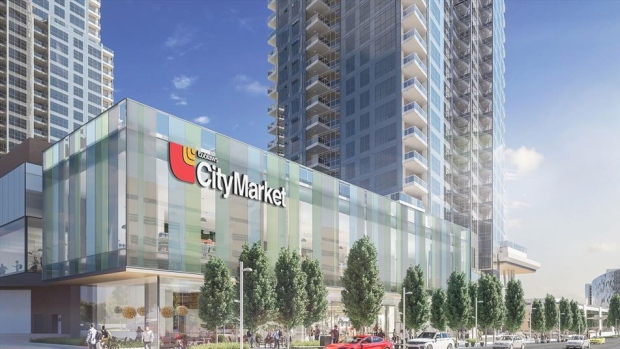RioCan REIT (REI_u.TO) is accelerating plans to dial in on Canada’s six largest cities, announcing its intent to sell 100 properties worth about $2 billion by the end of the decade. The move will see 90 per cent of RioCan’s annual revenue concentrated in the sextet of markets, up from the current 75.2 per cent and well above the 57.7 per cent recorded in 2004.
RioCan REIT’s chief executive Ed Sonshine told BNN that the focus of the sale would be retail properties and would entail “virtually everything we own that’s not in either Montreal, the [Greater Toronto Area], Ottawa, Edmonton, Calgary, or Vancouver.” He said that this is the continuation of a program RioCan has been utilizing for over a decade.
“At the end of the day, retail is dependent on population growth, even more so than income growth,” Sonshine told BNN in an interview on Monday. “In these smaller, secondary markets – and it’s like this throughout the whole world, but in Canada it seems to be particularly pronounced – young people, immigrants, they want to be in the big cities. So, what suffers is these secondary markets.”
“[There’s] very slow, or no population growth. I think the poster child for that is the Maritimes, quite frankly and sadly. So, retailers are just prepared to pay higher rents. They’re not leaving those secondary markets, but they’re not going there, either, if they’re not already there.”
The sale – which Sonshine says is expected to be completed by the end of 2019 - will drastically reduce RioCan’s property count, which stood at 299 in the second quarter of this year. RioCan is earmarking the proceeds for a share buyback, development activities, and as a credit backstop. The REIT is also suspending its dividend reinvestment plan to maximize the effectiveness of the buyback.
Sonshine believes the company will have no trouble finding buyers for the properties.
“We’re - as a public company - focused on growth,” Sonshine said. “The properties we’re selling, they’re good, solid, income-producing properties, [we]’re just not going to get the growth that we need from those properties as a public entity.”
“There are lots of private buyers, REITs focusing on the smaller markets, pension funds.”








